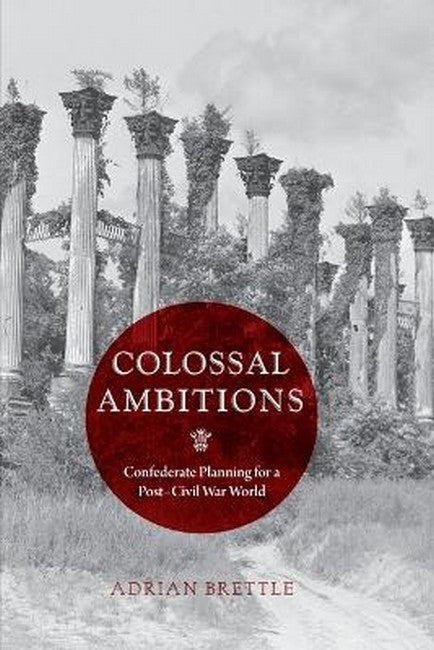Adrian Brettle is Lecturer and Associate Director of the Political History and Leadership Program in the School of Historical, Philosophical, and Religious Studies at Arizona State University.
Request Academic Copy
Please copy the ISBN for submitting review copy form
Description
Colossal Ambitions is a polished, well-researched, and well-written book. The level of detail about how Confederates imagined economic development, international relations, cotton production, and slavery is impressive. Brettle has provided a significant work that will help readers grasp what is at stake in understanding the imagination of Confederate thinkers and planners. --John Majewski, University of California, Santa Barbara, author of Modernizing a Slave Economy: The Economic Vision of the Confederate Nation [A]n engrossing investigation into the scale, but in some ways also the startling modernity, of the South's territorial ambitions. -- "The New Statesman" An interesting and valuable contribution to the field, Colossal Ambitions elaborates on themindset that underpinned Confederates' diplomatic hubris. -- "American Nineteenth Century History" Not only did Confederates anticipate victory on the field of battle, but also they had specific ideas about the society that the blood sacrifice of their soldiers would conjure into being. This lucidly written, historically imaginative, and deeply researched study by Adrian Brettle weaves these ideas into a valuable picture of the postwar world envisioned by Confederate policy makers and opinion makers... Based on the skillful portrait the author creates, one would not be wrong to argue that Confederate thinkers looked backward to a perfected antebellum world rather than forward to a realistic postwar world. -- "The Journal of Southern History"

